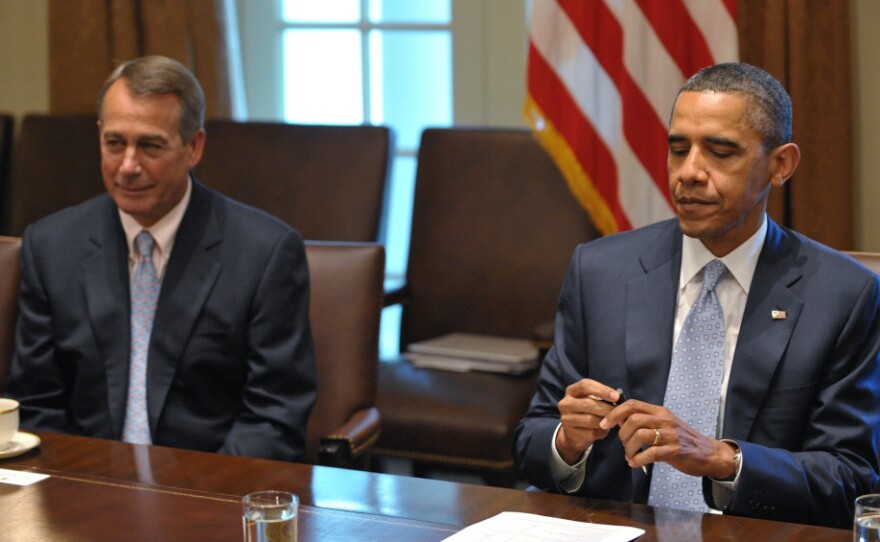The business day had barely begin Friday in the U.S. Capitol when Sen. Harry Reid, the Senate majority leader, issued a caution to fellow Democrat President Obama and Republican Speaker John Boehner on their negotiations to reach a deal to raise the deficit ceiling.
Reid said:
We all know... there are talks going on between President Obama and Speaker Boehner. I wish them well. We await their efforts. I'm told there will be revenue measures in there. If that's the case, we know Constitutionally the matter must start in the House of Representatives.
I say to both the president and the speaker here on the Senate floor, representing my Democrats and I'm confident many Republicans: Be very careful, show a lot of caution as this negotiation goes forward, because any arrangement must be fair to all America, not just the wealthy.
The senator from Nevada, in his typically softspoken, low-key way, was putting the two leaders on notice, particularly the president, that Democrats wouldn't accept the kind of deal it appeared Obama and Boehner had been quietly negotiating.
According to reports, the framework of that deal would have put the nation on the path to cutting spending by $3 trillion over ten years to reduce the U.S. deficits and debt.
But the spending cuts, especially in social programs cherished by Democrats, like Medicare and Social Security would have come first while the tax increases, perhaps as much as $1 trillion, would have come later.
This infuriated Democrats who feared Obama was caving to the Republican emphasis on spending cuts. They also were miffed by being excluded from the talks.
The Wall Street Journal reported on just how hot senate Democrats have gotten:
Earlier Thursday, a closed-door gathering of Senate Democrats erupted in anger when White House Budget Director Jacob Lew entered, participants said. "As he walked into the room, it was like Mt. Vesuvius," said Sen. Barbara Mikulski (D., Md.). "You can't ask us to vote when we have not been part of the deal."
Speaking after that meeting, Majority Leader Harry Reid (D., Nev.) said, "This can't be all cuts. There has to be balance. There has to be revenues."
The furor was so great that when the New York Times reported Thursday that a deal between the president and speaker seemed imminent, White House press secretary Jay Carney emphatically beat down that story.
The last thing White House officials wanted congressional Democrats to think was that they were going to be presented not only with a fait accompli but one that didn't reflect Democratic values.
The Daily Beast reported captured the mood that prevailed among House Democrats:
As rumors about a possible deal spread across Capitol Hill, confounded House Democrats said that if Obama was looking for 218 votes to pass such a package, he would have to do it without them.
"I guess they have the votes over there," said Rep. John Larson, the Connecticut Democrat, motioning to the Republican side of the House chamber. "Whatever that is, we're not privy to it. Stay tuned."
That kind of reaction demonstrated something that hasn't gotten as much attention in the debt-ceiling coverage as it should have. It's not just House Republicans who must be appeased; it's going to take enough congressional Democrats signing on to a final deal for a default by the U.S. to be averted.
It underscores the difficulties facing not just Boehner in getting a deal he can sell to his fellow House Republicans and their Tea Party supporters but Obama who must keep progressives with him.
Copyright 2022 NPR. To see more, visit https://www.npr.org. 9(MDAzMjM2NDYzMDEyMzc1Njk5NjAxNzY3OQ001))







